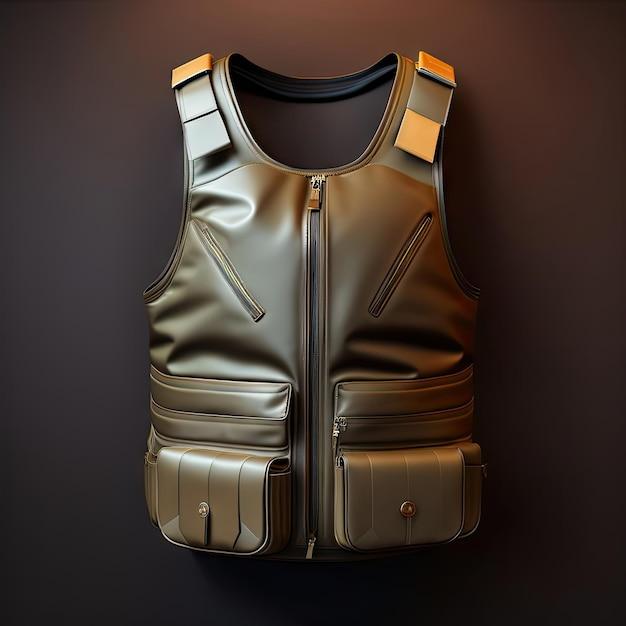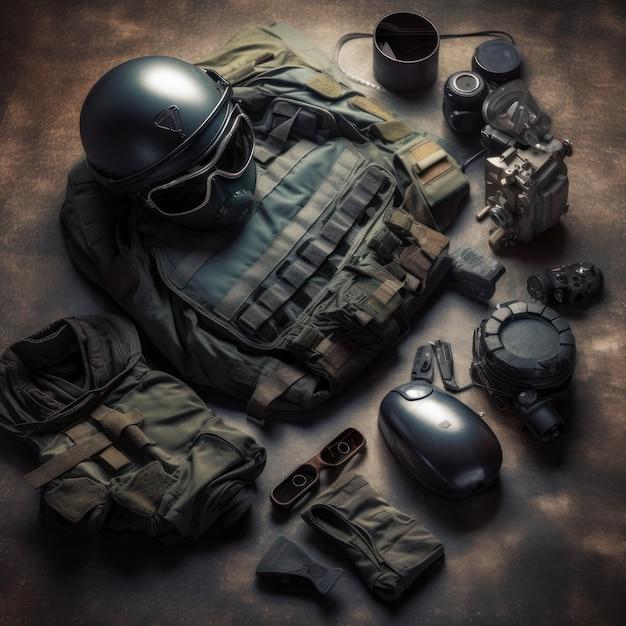The evolution of glass is taking an exciting turn with the emergence of metallic glass. In recent years, this cutting-edge material has been making waves in various industries due to its exceptional strength and unique properties. So, the question that arises is, can metallic glass be bulletproof? Join us as we delve into the fascinating world of metallic glass to explore its potential as a bulletproof material and its implications for the future.
From breaking records as the strongest glass ever made to revolutionizing industries, metallic glass has been garnering attention for its extraordinary properties. But what exactly is metallic glass? How does it compare to traditional glass and other materials like metal and titanium? We’ll answer these questions and discuss the downsides and advantages of using metallic glass. Additionally, we’ll explore its potential applications, sustainability benefits, and the companies leading the way in its production.
Let’s embark on this journey into the realm of metallic glass and discover how this remarkable material may shape our future for the better.
Is Metallic Glass Bulletproof
Exploring the Myth of Bulletproof Metallic Glass
The Marvelous Possibilities of Metallic Glass
Move over, Superman! The world of materials science has its own superhero, and it goes by the name of metallic glass. With its remarkable combination of strength and flexibility, metallic glass has been hailed as a potential game-changer in various industries. But one question still lingers in the minds of many: Is metallic glass bulletproof? Let’s put on our lab coats and dive into the world of this fascinating material to find out.
Unmasking the Myth
Despite its promising properties, metallic glass, alas, cannot transform into an impenetrable shield like the ones we see in superhero movies. While it exhibits exceptional strength and durability, it still falls short of being truly bulletproof. The myth of metallic glass being impervious to bullets stems from exaggerated claims and a sprinkle of wishful thinking. Sorry to burst your bubble, but the reality is a bit more down-to-earth.
The Science Behind Metallic Glass
To understand why metallic glass can’t stop bullets in their tracks, we need to grasp its composition. Unlike conventional metals with ordered atomic structures, metallic glass is an amorphous material, with its atoms arranged in a disordered pattern. This atomic arrangement lends it unique mechanical properties, such as strength and elasticity. However, when it comes to resisting high-velocity impacts, it falls short.
Bullets vs. Metallic Glass
When a bullet strikes a material, it rapidly transfers energy, generating a shockwave that can cause the material to fracture. While metallic glass has impressive strength under normal conditions, the extreme kinetic energy unleashed by a bullet is enough to shatter even its mighty atomic structure. Think of it as the difference between a powerful punch and a knock-out blow. Metallic glass may withstand a punch, but a bullet packs an unfathomable wallop.
The Quest Continues
While metallic glass may not be bulletproof, scientists and engineers are continuously striving to enhance its properties and explore new applications. By tweaking the composition and design, they aim to improve its fracture toughness and impact resistance. The quest for the holy grail of a truly bulletproof material remains ongoing, with metallic glass contributing valuable insights along the way.
Beyond Bulletproof
Despite not meeting the bulletproof benchmark, the unique properties of metallic glass open up a world of exciting possibilities. From lighter and more efficient armor to stronger and more durable consumer products, metallic glass is making waves in various industries. So while it may not be suitable for deflecting bullets, this remarkable material is still transforming the world in ways we couldn’t have imagined.
Conclusion
In conclusion, metallic glass, for all its strength and flexibility, is not bulletproof. The myth surrounding its bullet-stopping abilities is just that—a myth. However, this doesn’t diminish the immense potential of metallic glass in revolutionizing industries where strength and durability are paramount. So let’s celebrate the true powers of this remarkable material as it continues to shape the future, one breakthrough at a time.
Disclaimer: The statements in this article are based on scientific research as of the year 2023 and may be subject to future revisions and advancements in materials science.
Metallic Glass: Frequently Asked Questions
Is glass harder than diamond
Contrary to popular belief, glass is not harder than diamond. In fact, diamond is one of the hardest materials on Earth, while glass is relatively brittle. But that doesn’t mean glass isn’t fascinating in its own right!
What is the weakest type of glass
The weakest type of glass is soda-lime glass. It’s the most common type of glass used in windows and bottles. Although it may not be the strongest, it’s still widely used due to its affordability and versatility.
Is metallic glass expensive
Compared to traditional metals, metallic glass can be more expensive to produce. Its unique properties and manufacturing process contribute to its higher cost. However, with advancements in technology and increased production, we can hope to see the costs decrease in the future.
Is metallic glass a metal or a glass
It’s both! Metallic glass, also known as amorphous metal, exhibits characteristics of both metals and glass. It has a non-crystalline structure like glass, while possessing the strength and flexibility of metals. It’s truly a hybrid material that opens up exciting possibilities!
What is the strongest glass ever made
The strongest glass ever made is alumina glass. With its exceptional hardness and resistance to high temperatures, it has become an essential material in various industries. Alumina glass is used in aerospace, defense, and high-pressure applications, showcasing its incredible strength.
How will metallic glass change the future for the better
Metallic glass holds enormous potential for the future. Its unique properties make it ideal for various applications, such as smartphones, aerospace components, and medical devices. The lightweight yet strong nature of metallic glass can revolutionize industries, offering improved performance and efficiency.
What company makes metallic glass
Several companies are involved in the research and production of metallic glass. One prominent player in this field is Liquidmetal Technologies. Their expertise and innovation have played a significant role in advancing metallic glass technology.
Is metallic glass transparent
No, metallic glass is not transparent like traditional glass. Its metallic structure gives it a different appearance, often resembling a shiny or reflective surface. So, don’t expect to see through metallic glass like you would with a windowpane!
Is metallic glass stronger than titanium
Yes, metallic glass is stronger than titanium. While titanium has long been known for its impressive strength-to-weight ratio, metallic glass surpasses it in terms of strength and toughness. It’s an exciting alternative that can potentially replace titanium in various applications.
Is bulletproof glass actually glass
Despite its name, bulletproof glass is not made entirely of glass. It is typically made by sandwiching layers of polycarbonate material between sheets of glass. This combination provides the necessary strength and impact resistance to stop projectiles while providing transparency.
Why does glass break easier than steel
Glass breaks easier than steel due to its atomic structure. Glass lacks the ordered arrangement of atoms found in metals like steel, making it more prone to fractures under stress. The random arrangement of atoms in glass leads to the propagation of cracks, resulting in easy breakage.
Why is metallic glass important
Metallic glass is important because it combines the desirable qualities of metals and glass into a single material. Its exceptional strength, high corrosion resistance, and elasticity make it an attractive option for a wide range of applications. From consumer electronics to biomedical devices, metallic glass has the potential to elevate various industries.
Why are metallic glasses so strong
The strength of metallic glasses lies in their unique atomic structure. Unlike crystalline materials, metallic glasses lack defects like grain boundaries, making them more resistant to deformation. Their disordered structure also prevents the spread of cracks, resulting in remarkable strength and toughness.
What are the downsides to using metallic glass
While metallic glass has many advantages, it’s not without its downsides. Manufacturing metallic glass can be challenging, as the cooling rate must be carefully controlled to avoid crystallization. Additionally, the relative novelty of metallic glass means that its applications are still being explored and developed.
Can metallic glass break
Although metallic glass is incredibly strong, it is not indestructible. Like any material, extreme forces can cause it to break. However, its unique structure and properties make it more resistant to fractures compared to traditional glasses or metals.
Are metallic glasses strong
Yes, metallic glasses are indeed strong. In fact, they can be significantly stronger than their crystalline counterparts. The absence of grain boundaries and other defects, combined with their non-crystalline structure, contributes to their exceptional strength and toughness.
Which is the hardest metal in the world
The hardest metal in the world is tungsten. With its incredibly high melting point and remarkable hardness, tungsten has become a primary choice for various industrial applications. From electrical contacts to cutting tools, tungsten’s toughness and strength make it a valuable metal.
What is the strongest glass ever
The strongest glass ever is a type of transparent alumina glass. With its exceptional hardness and strength, it can withstand extreme conditions and resist scratching. Transparent alumina glass serves as a testament to the incredible advancements in material science and engineering.
Why is it called metallic glass
Metallic glass is called so due to its appearance and unique structure. Unlike traditional glasses with a crystalline structure, metallic glass resembles the appearance of metals. Its atoms are densely packed in a disordered and non-crystalline manner, giving it a glass-like quality while still exhibiting metallic properties.
How will you distinguish metallic glass from ordinary glass
Distinguishing metallic glass from ordinary glass can be quite simple. Simply look for its metallic appearance. Metallic glass often has a shiny or reflective surface, setting it apart from the transparent or translucent nature of ordinary glass. It’s a visual cue that gives away its unique composition and properties.
And there you have it, a comprehensive FAQ section on the intriguing topic of metallic glass! Feel free to delve deeper into this fascinating material and explore its potential applications in an exciting array of industries.

